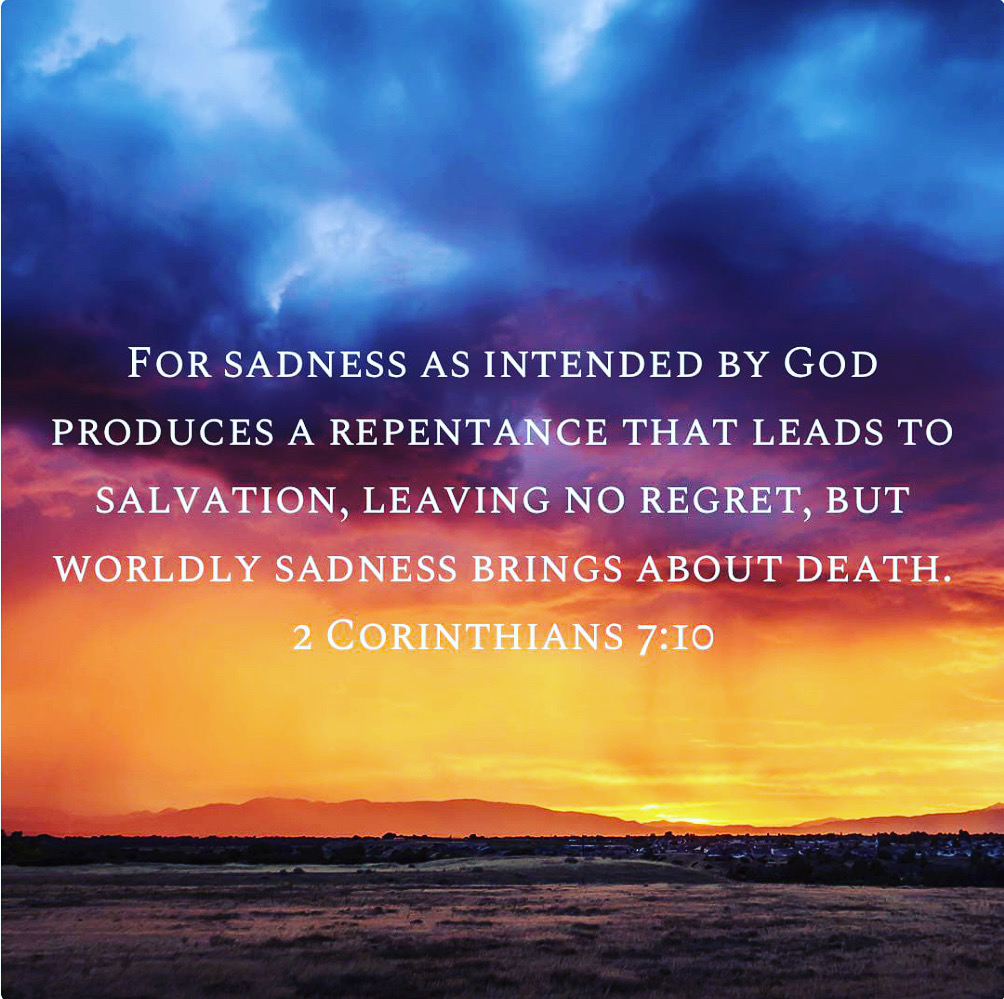Our scripture this morning is 2 Corinthians 7:8-10.
For even if I made you sad by my letter, I do not regret having written it (even though I did regret it, for I see that my letter made you sad, though only for a short time). Now I rejoice, not because you were made sad, but because you were made sad to the point of repentance. For you were made sad as God intended, so that you were not harmed in any way by us. For sadness as intended by God produces a repentance that leads to salvation, leaving no regret, but worldly sadness brings about death.
This excerpt from Paul’s second letter to the Corinthians is an almost apology. Paul tells them he didn’t want them to be sad at his words but that his lesson was intended to produce a change in them. This is such difficult situation, trying to convince people of the danger of their disobedience.
As Christians we are told not to judge, at least not by human standards, but at the same time Jesus shares this guidance: “If your brother sins, go and show him his fault when the two of you are alone. If he listens to you, you have regained your brother” (Matthew 18:15). We are to watch over each other in love. Is it judgement when we try to prevent people harming themselves or others?
He ends this passage with the reminder “for sadness as intended by God produces a repentance that leads to salvation, leaving no regret”. God doesn’t want us to be sad in a worldly way, but that sadness at sin will lead us back into the relationship God wants with us. When we see our error, we may be saddened by our wrong choice, but we know that God stands ready to welcome us back.
Gracious God, we are sorry for our selfish ways. Help us to hear Your word, feel Your love and share Your goodness with all the world. Amen.
